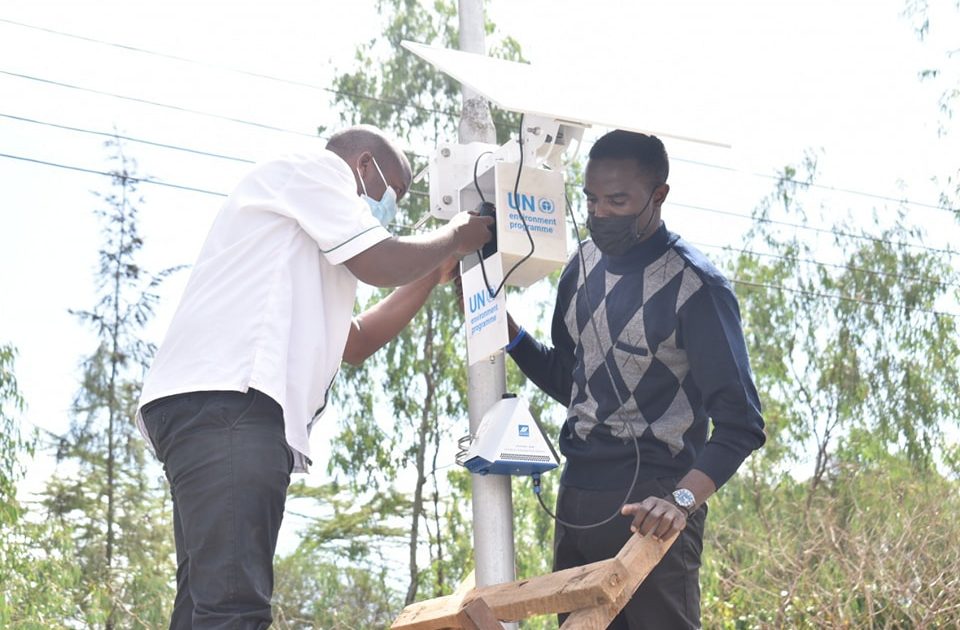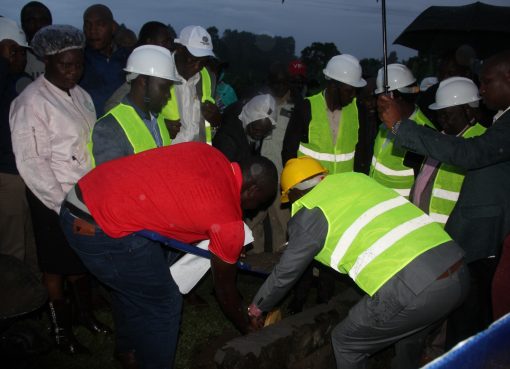The County Government of Nakuru has called for collaborative efforts to tackle air pollution in Kenya.
The City Director of Environment, Mr. Kiogora Muriithi, said addressing the issue of air pollution is not entirely a government responsibility but for all.
“Addressing air pollution is not solely the responsibility of the government or a handful of institutions. This is a challenge that requires the engagement and participation of all stakeholders,” he said.
Mr. Kiogora spoke at a meeting organised by the devolved unit’s administration in partnership with the Flemish International Climate Action Plan (FICAP) to engage residents’ representatives in a test focus group discussion geared towards understanding the residents’ perceptions of air quality in Nakuru City.
“Through these focus groups, we are creating a platform for citizens to share their experiences and concerns about air quality. Nakuru City is taking decisive action to tackle air quality challenges and promote a cleaner, healthier environment for its residents,” he said.
Mr. Kiogora indicated that the private sector must play its part by adopting cleaner technologies and reducing emissions from their operations. Civil society organisations have a crucial role in advocating for cleaner air and educating the public on the dangers of pollution.
He observed that every citizen can contribute by making responsible choices that minimise their own environmental impact.
The City Director of Environment called on residents to ensure a city where everyone can breathe freely and live healthy and productive lives.

According to UNEP, ambient (outdoor) air pollution was estimated to cause close to 400,000 premature deaths in Africa alone in 2019, while indoor air pollution caused more than one million premature deaths.
“Our country is no exception. We are witnessing the severe health impacts of air pollution. In urban areas like Nakuru, the situation is particularly alarming. Every day, thousands of Kenyans are exposed to air that poses significant risks to their health and well-being,” noted Mr. Kiogora.
“Respiratory and cardiovascular diseases such as asthma, bronchitis, strokes, and lung cancer are becoming more prevalent, especially among our children, the elderly, and those with pre-existing conditions. These diseases are all attributable in part to the quality of the air we breathe. Sadly, the worst air quality is found in informal settlements where most residents live,” he added.
The director said understanding and addressing the disproportionate impact of air pollution on vulnerable populations, particularly women and children, is critical to the city and country’s future.
He affirmed that Governor Susan Kihika’s administration had taken a huge stride in air quality monitoring through the installation of air sensors that have been strategically installed across the city.
Mr. Kiogora stated that the devolved unit’s administration is working with various partners in conducting research to assess the air quality across the city and map out hotspot zones that contribute significantly to pollution levels, including heavy traffic routes, densely populated neighbourhoods, the Giotto waste dumping site, and industrial zones.
According to the Director, the initiative that integrates an artificial intelligence tool to enhance the accuracy of air quality forecasting aims to establish a central data centre for continuous air quality monitoring, aligning with the city’s commitment to environmental sustainability and public health protection.
Mr. Kiogora noted that lack of actionable data and insights has made it difficult to track progress or lack of progress.
He explained that by providing accurate, real-time data on air quality, the already established air quality monitoring sites are serving as the foundation upon which the city can build more effective policies and interventions.
“With reliable data, we will be better positioned to identify pollution hotspots, track pollution trends, and take swift action to reduce harmful emissions,” he said.
The official expressed optimism that through the initiative, the devolved unit will be able to monitor air quality, compile a pollutant emission inventory, model and predict air quality trends, set and enforce air quality standards, put in place the relevant legislative and administrative frameworks, and also be able to provide regular online and real-time air quality reports, much like weather reports by the Kenya Meteorological Department.
Mr. Kiogora said the county administration’s priority areas in curbing air pollution include equipping the city with its air quality monitoring network and air quality management system, development and enactment of Nakuru Air Quality regulations, capacity building training, procurement and deployment of a comprehensive low-cost sensor Air Quality monitoring network, and data and research, among others.
He disclosed that the devolved unit was also working with other partners, including Egerton University, KU Leuven, Sensors Africa, and the Kenya Meteorological Department, to provide timely data that will enable the city to better understand pollution trends and adapt to climate change impacts, aligning with Nakuru’s Climate Change Act and the National Climate Change Plan 2023-2027.
“As a vibrant industrial and commercial centre, Nakuru has to deal with the consequences of rapid population growth and urbanisation, such as increased motorised transport and industrial activities,” he said.
Possible air pollution drivers in African cities are industrial processes like untreated effluents, poor waste management practices, urban transport infrastructure, and dust from unpaved roads.
Air pollution is the world’s largest single environmental health risk, with the World Health Organisation report showing that seven million people die every year due to exposure to air pollution. Among other side effects, air pollution causes cardiovascular and respiratory diseases that lead to the loss of healthy years of life.
Mr. Kiogora acknowledged that the adverse impacts of air pollution on health, the environment, society, and the economy could not be overstated, thus necessitating a well-thought-out plan to address air pollution.
“We believe this initiative will have a profound impact on enhancing the air quality in our city. It underscores our conviction that placing Nakuru at the forefront of implementation is a more sustainable approach to combating air pollution.”
The Director added that the county is dedicated to engaging robustly with the community and residents to enhance air quality.
By Jane Ngugi





